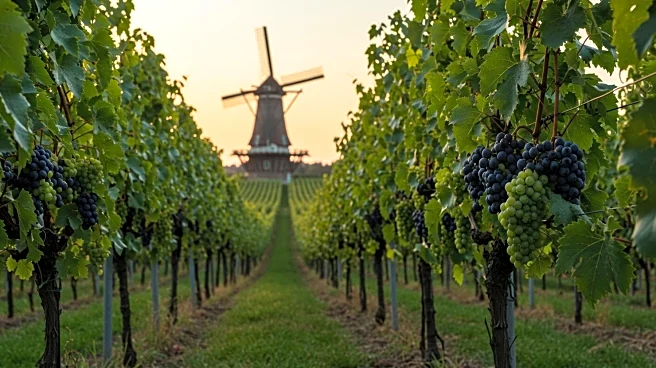What's Happening?
European farmers have expressed dissatisfaction with the recently announced U.S.-EU trade deal, claiming it offers no benefits to the agriculture sector. The framework agreement includes a 15% tariff on EU goods and preferential market access for certain U.S. agricultural products. However, EU farming lobby group Copa-Cogeca argues that the deal is one-sided, granting improved access for U.S. agri-food products while leaving EU producers facing higher tariffs. The agreement excludes key products like beef, poultry, and rice, further exacerbating concerns among European farmers.
Why It's Important?
The trade deal's impact on the agriculture sector is crucial, as it affects the livelihoods of farmers and the broader rural economy in Europe. The perceived imbalance in the agreement could lead to increased pressure on EU farmers, who are already facing challenges from rising costs and global competition. The deal's focus on other sectors, while sidelining agriculture, highlights a trend in EU trade negotiations that may have long-term implications for the agricultural industry. The dissatisfaction among farmers could influence future trade discussions and policy decisions within the EU.
What's Next?
The European Commission has stated that the deal is not the end of the process, indicating ongoing negotiations with the U.S. to secure more tariff reductions and cooperation areas. The EU's commitment to providing stability for exporters may lead to further adjustments in the agreement. However, the criticism from Copa-Cogeca suggests that the EU will need to address the concerns of its agricultural sector to ensure balanced trade relations and support for its farmers.









